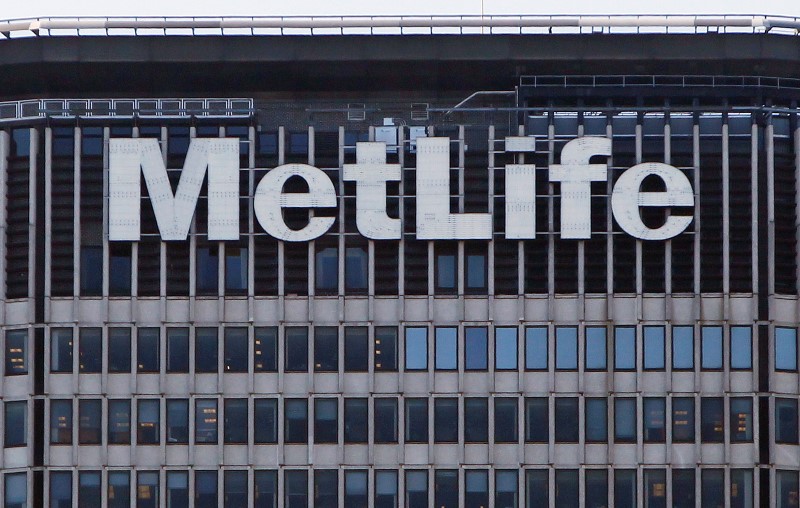By Lisa Lambert
WASHINGTON (Reuters) - The U.S. government and the country's largest life insurer squared off in federal court on Wednesday over whether regulators can designate non-banking firms as "too big to fail," one of the major reforms that followed the financial crisis.
U.S. District Judge Rosemary Collyer heard MetLife Inc (N:MET).'s arguments that the Financial Stability Oversight Council (FSOC) used a secretive and flawed process when it designated the insurer as systemically important.
MetLife received the designation in 2014 when the heads of the major U.S. financial regulatory agencies determined that a collapse of the insurer could devastate the U.S. financial system just as much as failure of a major bank such as Citigroup (N:C) or Goldman Sachs (N:GS).
Other non-bank firms receiving the designation were insurers American International Group Inc (N:AIG). and Prudential Financial (N:PRU), Inc., and General Electric (N:GE) Capital.
MetLife sued last year. It said the council, which includes the Treasury Secretary and Federal Reserve Chair, had not followed its own guidance on designating a firm as systemically important, essentially changing the rules to ensure the determination was made.
In court on Wednesday, the federal government argued that its process was fair and that a collapse by the insurer, with its many financial ties, products and contracts, would indeed hurt the financial system. It said it was open with the company during a 17-month process that included exchange of thousands of pages of documents and several meetings, including one with the full council.
At the heart of the case is whether the government can designate non-banks as systemically important, an authority it received in the 2010 Dodd-Frank Wall Street reform law after AIG required a government bailout of $182 billion during the 2008 financial meltdown.
Collyer, who is expected to rule in a few months, questioned the FSOC structure, specifically how it gathers information and forms judgments on companies' stability. She drew a comparison to how other agencies perform administrative adjudication, such as the Securities and Exchange Commission, where internal administrative courts operate separately from other areas.
"There's nobody neutral in this. They all have an interest," she said about the FSOC structure where analytical teams report to committees, who then report to the council, helping formulate a final decision.
She also asked about assessing the firm's vulnerability and why the council did not conduct a risk analysis. FSOC began with the hypothetical premise that MetLife was on the brink of insolvency.
"That's not risk analysis. That's taking the risk out of it. That's assuming the worst of the worst of the worst," she said.
FSOC's attorneys said it is not charged with determining the probability that a firm will fail, only forecasting possible consequences of a failure.
Non-bank firms designated systemically important must hold more capital and comply with rules intended to stave off the need for a federal bailout should they fail. The rules have yet to be finalized.
Last month, MetLife said it plans to split up due to the "regulatory environment" and pressure is mounting on other firms to also shrink and shed the designation.
MetLife says it should not be designated as systemically important because there are no "runs" on insurance policies. But FSOC says many of the firm's financial products go beyond insurance and could require payment on demand.
Insurance is regulated at the state level, and MetLife says the designation could force it to comply with two layers of regulation. The National Association of Insurance Commissioners has filed a court brief supporting MetLife's lawsuit.
FSOC's insurance sector representative was the only member to vote against the systemically important designation.
